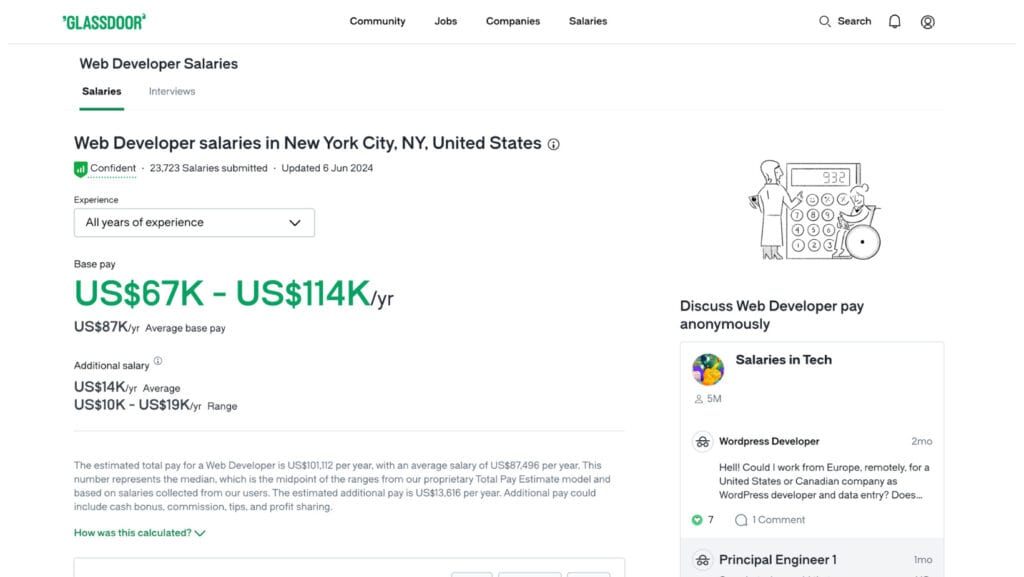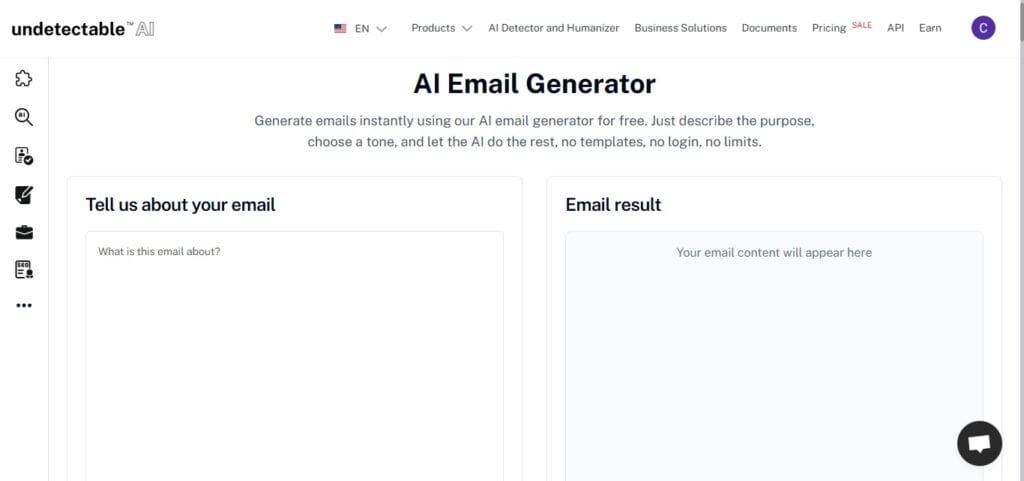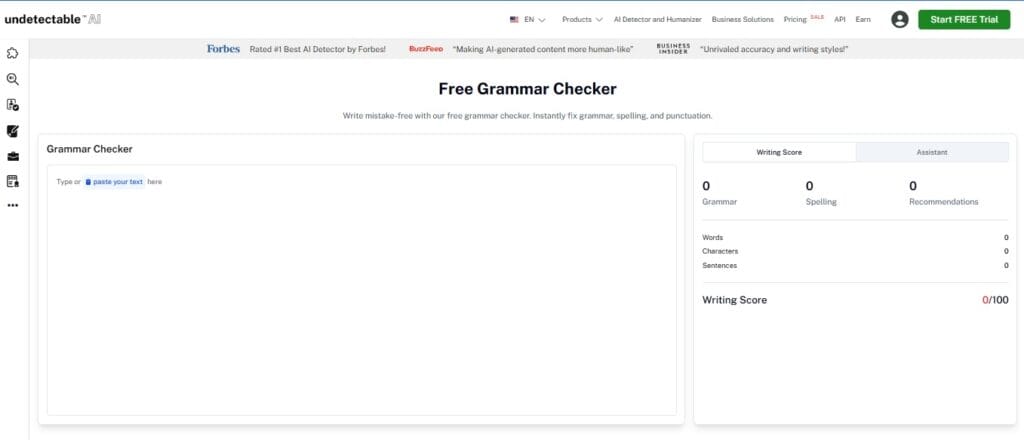Asking for a pay rise is awkward and scary.
No matter how hard you’ve been working (and no matter what results you’ve been generating for the company), it’s scary to go before your boss and request a salary review.
There’s always the fear that you’re not doing it right, or that they’ll reject you.
But let’s be honest—if you’ve been working hard, taking on more responsibilities, and delivering results, it’s only fair to ask for your contributions to be recognized.
For many of us, though, the idea of a face-to-face conversation about salary is enough to send us running for cover, which is where your email can come in handy.
Sending a raise request email (instead of an on-the-spot conversation) gives you the chance to plan what you’re going to say and get your facts straight.
But is email the right way to ask for a raise?
And if so, how do you write an email that sounds professional and gets to the point?
In this guide, we’ll break down everything you need to know about asking for a pay rise in email, including templates you can use to make your case effectively.
Is Email the Right Way to Ask for a Raise?
So, is email the right way to ask for more money at your job? The reality is that it probably depends.
For corporate roles and remote work, then the answer is a resounding yes.
Email communication is the norm in these circumstances, and asking for a raise in a video call or in person might result in you being asked to send an email instead.


Never Worry About AI Detecting Your Texts Again. Undetectable AI Can Help You:
- Make your AI assisted writing appear human-like.
- Bypass all major AI detection tools with just one click.
- Use AI safely and confidently in school and work.
Documenting your efforts and keeping written records (even if they are just in your inbox) are important parts of corporate life.
On the other hand, major corporations might have established pathways to submit a raise request, and emails sent to the wrong person might not get you far if you don’t follow due process.
Email might not be seen as the best communication method in some industries.
If you’re a blue-collar worker or work in a small business where face-to-face interactions are valued, then an email might be seen as impersonal or rude.
In this case, consider sending an email to schedule a meeting where you can make your request in person.
Ultimately, whether asking for a raise via email is right for your role comes down to your personal circumstances.
When to Ask for a Raise
It’s not just how to ask for a raise but also when.
Timing Is Everything
When asking for a raise, getting the timing right is everything.
Make a request at the wrong time, and your pay rise will be denied, and you might have to wait to make another request.
Wait till the opportune moment, however, and you’ll find securing your pay rise easier. Here are a couple of timing factors to look for.
- After a significant accomplishment or project: For example, if you’ve played a major role in closing a big deal or completing a successful project, then it might be time to use your valuable contributions as evidence you deserve a raise.
- During performance review periods: Many companies expect salary discussions during those annual formal evaluation meetings. Come prepared with evidence of your key contributions to the business, and any specific recent accomplishments or positive feedback you’ve received that recognizes your work.
- When the company is performing well: If your organization is reporting strong financial results, or if quarter exceeded expectations, it’s easier to justify an increase (bonus points if you can link some aspect of the company’s success to your direct contribution!)
Market and Company Conditions
It’s not just internal factors that impact the conditions for a raise.
Market trends and macroeconomic factors impact the average pay in any industry.
If you’ve not checked in with industry standards recently, you might find that you’re being underpaid according to current market rates.
If so, now is a great time to ask for an increase in line with your market value.
Before making any request to increase your compensation, do some market research: what’s out there and what could you expect to receive if you moved jobs?
Remember, though, this works both ways.
If the market is underperforming, if the job market is stagnant, or if your comprehensive research finds you’re overpaid, then it might be best to keep stum and focus on your individual impact instead.
Signs You Might Be Overdue for a Raise
As well as time and macroeconomic conditions, there might be some other factors that make asking for a raise timely, including if:
- You’ve taken on additional job responsibilities outside your job description
- It’s been over a year since your last raise
- Your performance has consistently exceeded expectations
- You’ve been receiving consistently positive feedback from your manager or colleagues
- You’ve been asked to mentor or train new team members
- Your workload has increased
- Your efforts have directly made revenue increases or cost savings for the company
- You’ve noticed that colleagues in similar roles are earning higher salaries
- You’ve been offered another job at a higher rate
Preparing to Ask for a Raise
Now, you’ve seen the opportunity to ask for a raise, and you’re ready to take the plunge.
But don’t simply fire off an email and press send. Instead, take some time to prepare yourself with facts and evidence to support your case.
If you come prepared with an offer and evidence to support that, it’s much more likely to be accepted than an indeterminate raise request.
First, it’s time to get serious about your value.
Have you driven measurable results, improved processes, or exceeded your role’s expectations? The value of your unique skills is your strongest bargaining chip.
Next, research market rates by looking up salary benchmarks for your role and industry using online tools like Glassdoor, Payscale, or LinkedIn Salary Insights.
These resources let you analyse and compare jobs by their salary range, making it easier for you to see what salary you might be able to expect.

Next, gather evidence of your contributions.
Whether you’ve worked on a major project, had an instrumental part to play in smashing your team’s goals, or even if you’ve got evidence of you consistently performing beyond your job title, this all helps.
Gather your evidence (and a brief description of each if necessary) and get ready to present it as you ask for your well-deserved raise.
And finally, once you’ve got all this, it’s worth taking some time to practice your pitch.
You’ll always go further if you respectfully request an increase, and getting your facts in order and speaking with confidence will help you on your path to your salary increase.
How to Write an Email Asking for a Raise
Okay, now you’re ready to get started crafting your approach.
Follow this step by step guide to help you write a dream email requesting your raise.
1. Subject Line
Your request starts in the subject line. Make sure the subject is clear and concise and gets your point across early.
Also, remember that this email is likely to get forwarded on to many people within your organization, so keep it professional.
Our suggestions include:
- Request for Salary Discussion
- Performance Review and Pay Adjustment Request
2. Opening
Next, don’t jump right into the request for your salary adjustments. Instead, open with a polite and professional greeting. For example:
“I hope this email finds you well. I’d like to schedule a time to discuss my current salary and the contributions I’ve made over the past year.”
3. Making Your Case
In this section, it’s time to set out your arguments for why you believe a pay increase is justified. Use data and examples to back up your request.
For instance:
“Over the past 12 months, I’ve taken on [specific responsibilities], achieved [key accomplishments], and contributed to [company success]. Based on these contributions and job market benchmarks for my role, I’d like to discuss a salary adjustment.”
In the body here, you might want to include details of the exact raise you’re looking for, or you might prefer to keep it vague. Remember, keep a positive tone in the whole email, and write confidently.
4. Closing
Now, sign off with your name and your usual closing remark. For example:
“I’m happy to discuss this further and provide additional details during a meeting. Please let me know a good time for us to connect at your earliest convenience. Best regards, [Your Name]”
5. Send a follow up email
While you’re likely to get an initial response to your raise request, sometimes managers need a little nudge, especially if they’re busy or need approval from higher-ups.
Sending a polite follow-up email shows professionalism and persistence without being pushy, and is perfectly acceptable.
In your follow-up, briefly remind them of your initial request, reiterate your key points, and ask for an update.
You might also want to as if there is anyone else who is better placed to handle your request. For example:
Subject: Follow-Up on Salary Discussion
Hi [Manager’s Name],
I hope you’re doing well. I wanted to follow up on the email I sent on [date] regarding a potential salary adjustment. I understand you may need time to review or discuss this further, but I’d love to hear your thoughts when you have a moment.
Please let me know if there’s any additional information I can provide to support my request, or another member of the team who is best suited to help.
Best regards,
[Your Name]
Not sure how to phrase your request without sounding too demanding—or too timid? The AI Email Generator can help you strike the perfect balance.

Just input your goals, tone, and a few personal details, and it will generate a clear, confident, and respectful raise request email you can customize in seconds.
It’s ideal for professionals who want to sound assertive and polished without overthinking every word.

Before you hit send on a message that could define your financial trajectory, it is vital to use our Undetectable AI’s Grammar Checker to perfect the tone and syntax of your email.
This final technical sweep ensures that your request for a raise sounds authoritative and precise, stripping away any tentative phrasing or mechanical errors that might undermine the confidence of your pitch.
Is Requesting a Pay Raise via Email Considered Professional?
Asking for a raise via email is common and professional, especially in hybrid or remote work environments.
In fact, businesses expect their team members to ask for more compensation periodically. In a corporate business, a pay raise email is certainly professional.
Pros and Cons of Asking for a Raise Through Email
So, is an email raise request right for you? Let’s break down the pros and cons.
| Pros | Cons |
| Gives your manager a time period to review your case | Waiting for an answer can be daunting |
| Allows you to organize your thoughts and present evidence of key achievements clearly | Can feel impersonal |
| Less scary than presenting your case in person | Not appropriate in all work environments |
| Provides a written record of your request | May not allow for immediate clarification or discussion |
Templates for Asking for a Raise via Email
If you’re ready to take the plunge these templates can help. We’ve put together some examples to make the writer’s block easier to overcome, just don’t forget to customize these outlines before you hit send!
Template 1: Performance-Based Request
Subject: Request for Salary Discussion
Hi [Manager’s Name],
I hope you’re doing well.
Over the past [timeframe], I’ve worked hard to achieve [specific accomplishments]. Given these contributions to our company’s financial health, I’d like to discuss a salary adjustment. Let me know a convenient time to meet.
Best regards,
[Your Name]
Template 2: Market Rate Adjustment
Subject: Request for Pay Adjustment
Hi [Manager’s Name],
How are you?
I’ve recently researched market rates for roles similar to mine and noticed that my current salary falls below the average.
Given my recent performance and responsibilities, I’d like to discuss a pay adjustment. I’m happy to meet and discuss further – what time works for you?
Best regards,
[Your Name]
Template 3: Cost of Living Adjustment
Subject: Salary Adjustment Request
Hi [Manager’s Name],
Hoping this email finds you well.
I’d like to schedule a time to discuss my salary. With rising living costs and my continued contributions to the team, such as [give contribution here]I believe a pay adjustment is appropriate.
I’m happy to discuss this further. Please let me know a time that works for you.
Kind regards,
[Your Name]
Template 4: Additional Responsibilities Request
Subject: Request for Salary Adjustment
Hi [Manager’s Name],
I hope you’re well.
Over the past [timeframe], I’ve taken on additional responsibilities beyond the scope of my job title, including [specific examples].
I enjoy these new responsibilities and would like to discuss opportunities to change my job title and description and request a salary adjustment in line with similar positions at [Company Name].
Let me know a convenient time to meet.
Best wishes,
[Your Name]
How Undetectable AI Can Help with Raise Requests
Stuck with writer’s block? Crafting a raise request email can feel daunting, there’s a lot at stake, after all!
As a result, it’s tempting to rely on AI tools like ChatGPT that can make things easy for you by generating an email in a few clicks.
But that’s not always the best way to go about something as important as this.
AI-generated text can sound robotic, inhuman, and spammy, which is not ideal when you want to make a first impression on your manager.
That’s where tools like Undetectable AI come in. Our AI Humanizer transforms robotic-sounding AI text into genuine, human-like emails, so you can use AI in stealth mode.
Test our Humanizer AI in the widget below!
This way, you can use AI tools to save time, ensure proper grammar, and organize your thoughts effectively while still keeping a genuine, human-like tone.
Conclusion
Although asking for a raise is enough to make even the most confident among us shudder, it doesn’t have to be so daunting.
With the right timing, preparation, and approach, you can confidently ask for a raise via email by clearly making your case and including the evidence that backs up your request.
Plus, without templates (and a bit of love from the Undetectable AI humanizer, you can write the perfect email effortlessly, while still sounding like you.
If you’re ready to hit send on that raise request email, then give the humanizer tool a go for free, and good luck!
